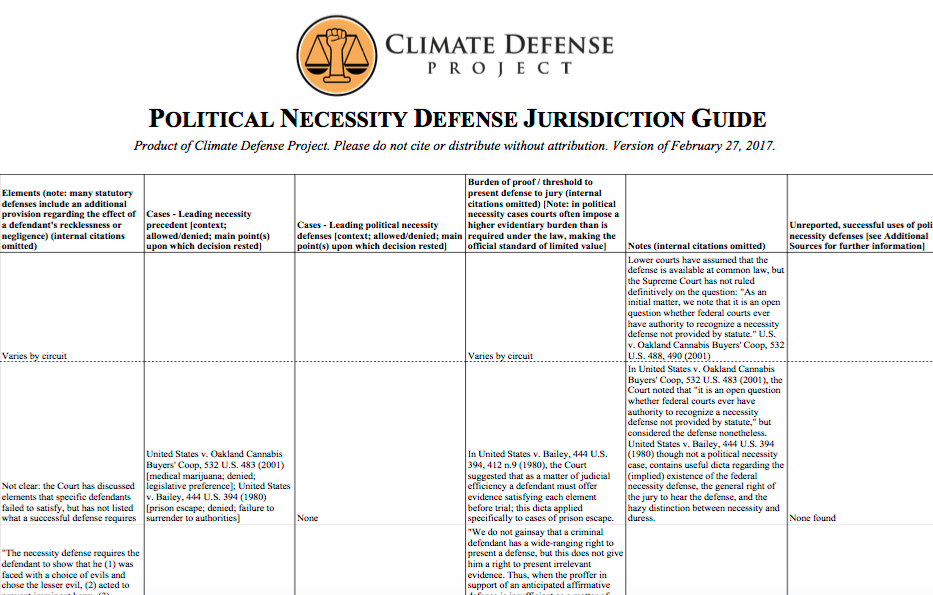CDP has just published the Political Necessity Defense Jurisdiction Guide, a comprehensive resource on the necessity defense and its application to political protest.
The necessity defense is an age-old legal doctrine that lets individuals off the hook for breaking the law in the public interest. In recent decades, necessity defenses have been successfully used by inmates fleeing life-threatening conditions in prison, health workers handing out clean needles to AIDS patients, and homeless people seeking shelter.
The necessity defense is also a powerful tool for political activists. By standing up in court and explaining why they had to break the law to address issues as diverse as nuclear proliferation and apartheid, many conscientious protesters have won acquittals and widespread recognition for their causes.
Today, the CDP and its allies are advancing the climate necessity defense, which justifies civil disobedience in protection of the climate. By democratizing the criminal legal system and allowing regular people to debate the measures needed to address the climate crisis, the climate necessity defense is one way to challenge the fossil fuel industry’s stranglehold on government policy.
Powerful strategies need powerful knowledge, and that’s why we’re publishing a comprehensive survey of the law of necessity in all 50 states and the federal courts.
The CDP’s Political Necessity Defense Jurisdiction Guide describes the elements of the necessity defense in each jurisdiction; the major case law on the defense; past examples of political necessity defenses; notes on the particularities of each jurisdiction’s doctrine; and attempts to use the climate necessity defense. The Guide also provides useful resources for further research.
We hope this Guide will prove useful to activists and attorneys interested in learning more about the necessity defense and the potential for climate legal activism, and that it will be a resource for our allies in other movements. Be sure to also check out our other resources for climate activists and attorneys.
You can find the Guide here.





